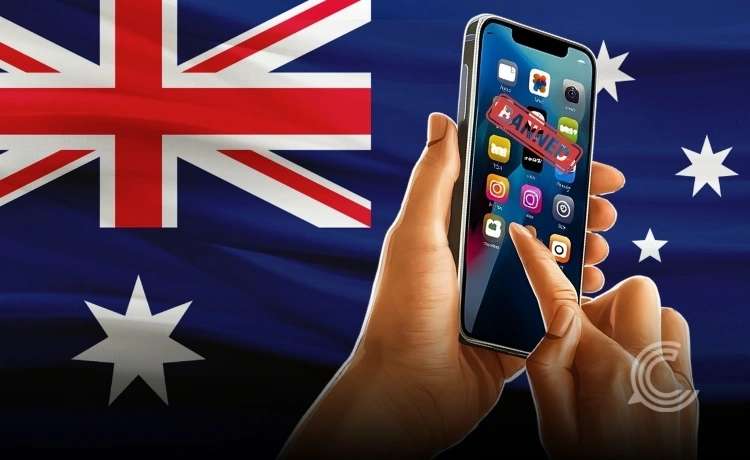Australia’s Under-16 Ban to Be Enforced by Social Media Giants

Key Points:
- Australia’s new law, effective December 10, will require social media platforms to take “reasonable steps” to block users under 16 or face substantial fines
- Meta, TikTok, and Snap publicly oppose the ban, arguing it is “rushed,” “unworkable,” and may push young users to unmonitored parts of the internet
- The platforms are preparing to deactivate an estimated one million-plus underage Australian accounts and plan to use AI-driven behaviour tracking for ongoing enforcement
Social media behemoths Meta (Facebook, Instagram), TikTok (ByteDance), and Snap (Snapchat) have confirmed they will comply with the world-first law banning users under the age of 16 from their platforms, effective December 10
Australia’s social media ban for individuals under the age of 16, passed as an amendment to the Online Safety Act, is one of the strictest pieces of legislation of its kind globally. The law mandates that platforms, including those owned by Meta, ByteDance, and Snap, must implement measures to prevent underage accounts. Failure to comply can result in fines of up to A$49.5 million (around US$32.5 million), a significant penalty designed to ensure serious action is taken.
In a recent parliamentary inquiry, executives from the major tech companies confirmed to obeying the law, even while expressing deep reservations. This reluctant compliance marks a notable shift in the industry’s response to global regulatory pressure, which has intensified amid widespread concerns over the impact of social media on youth mental health.
Industry Concerns: Enforcement and Unintended Consequences
The core of the technology industry’s resistance centers on both the practicality of enforcement and the potential for negative consequences.
Snap’s senior vice president of global policy and platform operations, Jennifer Stout, testified via video link, stating simply, “We don’t agree, but we accept and we will abide by the law,” as reported by Reuters. The company, which has often argued its platform is primarily a messaging service and should be exempt, indicated it would abide by Australia’s rules but warned that the ban could drive teenagers toward other, less-safe messaging services that lack Snapchat’s existing safety and privacy protections.
TikTok’s public policy lead for Australia, Ella Woods-Joyce, echoed this sentiment. She reiterated the Chinese-owned platform’s opposition, suggesting that “Experts believe a ban will push younger people into darker corners of the Internet where protections don’t exist.”
The Technical Challenge of Age Assurance
For Meta, which owns Facebook and Instagram, the challenge is significant. Meta’s policy director for Australia and New Zealand, Mia Garlick, outlined the substantial new engineering and age assurance efforts required. The company estimates it will need to address approximately 450,000 under-16 accounts across its platforms in Australia.
The method of enforcement relies on more than just user-reported ages. Platforms plan to deploy advanced, automated behaviour-tracking software to determine if a user claiming to be over 16 is actually underage. TikTok’s Woods-Joyce confirmed this, noting, “Where we identify someone that is saying they’re 25 but the behaviors would indicate that they’re below the age of 16, from December 10th we will have those accounts deactivated.”
Affected users will be given a choice: for existing accounts confirmed to be under 16, Meta and TikTok will offer users the option to either save their photos and other data or have it temporarily stored until they reach the legal age of 16.
Global Precedent and Privacy Concerns
The countdown to the December 10 deadline is being closely watched by governments worldwide, as Australia’s strict age-based ban could set a powerful precedent for similar social media ban proposals in other jurisdictions. Regulators globally are searching for effective strategies to manage the detrimental effects of unregulated social media use on young people.
A key concern raised by the tech companies is the potential privacy implications of the enforcement mechanisms.
While the Australian government has indicated that the law will not require users to upload personal identification, the “reasonable steps” demanded by the law will likely necessitate advanced age-assurance technologies, which themselves involve the collection and processing of sensitive personal data. This presents a complex trade-off between online safety and data privacy.



